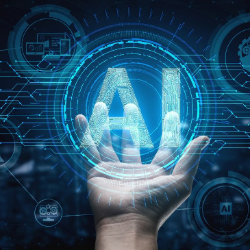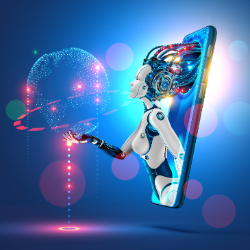
AI Breakthroughs
AI Computing Algorithms and Optimized Techniques
Artificial intelligence (AI) is a rapidly growing field with a wide range of applications. One of the key challenges in AI is developing efficient and effective algorithms for solving complex problems. In recent years, there have been significant advancements in AI computing algorithms, as well as the development of new optimized techniques for training and deploying AI models.
Recent Advancements in AI Computing Algorithms
Some of the most important advancements in AI computing algorithms include:
- Deep learning: Deep learning is a type of machine learning that uses artificial neural networks to learn from data. Deep neural networks are able to learn complex patterns from data, which makes them well-suited for a wide range of AI tasks, such as image recognition, natural language processing, and speech recognition.
- Reinforcement learning: Reinforcement learning is a type of machine learning that allows agents to learn by trial and error. Reinforcement learning agents are able to learn to perform tasks by interacting with their environment and receiving rewards for taking actions that lead to desired outcomes.
Optimized Techniques for Training and Deploying AI Models
In addition to advances in AI computing algorithms, there have also been significant advancements in the development of optimized techniques for training and deploying AI models. Some of the most important optimized techniques include:
- The use of GPUs for training AI models: GPUs are much faster than CPUs for performing the computationally intensive operations required for training deep neural networks.
- The use of cloud computing for deploying AI models: Cloud computing provides a scalable and cost-effective way to deploy AI models to production.
The Future of AI Computing Algorithms
The field of AI is constantly evolving, and new advancements in AI computing algorithms and optimized techniques are being developed all the time. Some of the most promising future trends in AI computing algorithms include:
- In 2022, Google AI announced the development of Pathways, a new framework for training and deploying AI models. Pathways is designed to make it easier and faster to develop and deploy AI models, and it is already being used by Google to train models for a variety of applications, including image recognition, natural language processing, and machine translation.
- In 2022, OpenAI announced the development of GPT-4, a new large language model that is capable of generating human-quality text. GPT-4 is trained on a massive dataset of text and code, and it is already being used for a variety of tasks, including writing articles, generating code, and translating languages.
- In 2022, DeepMind announced the development of AlphaFold, a new protein folding algorithm that is capable of predicting the structure of proteins with unprecedented accuracy. AlphaFold is used by researchers to study the structure and function of proteins, and it has the potential to revolutionize the fields of biology and medicine.




